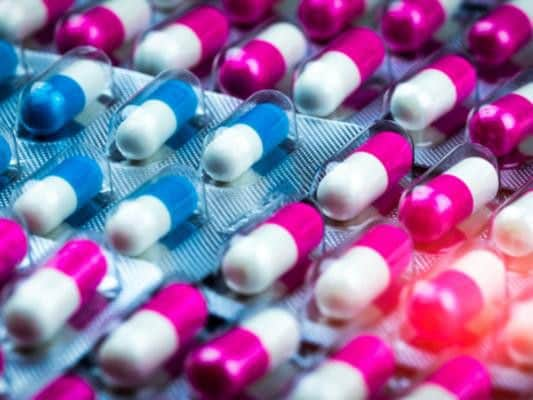This is how to know when you’re ill enough to be prescribed antibiotics


Antimicrobial resistance (AMR) now poses such a threat that "we are on the cusp of a world where a simple graze could be deadly", the Health Secretary has warned.
What are antibiotics used to treat?
Antibiotics are used to treat or prevent some types of bacterial infections, but are ineffective against viral infections like the common cold or flu.


Advertisement
Hide AdAdvertisement
Hide AdThe NHS advises antibiotics should only be prescribed to treat conditions:
- that are not especially serious but are unlikely to clear up without antibiotics, such as moderately severe acne
- that are not especially serious but could spread to other people if not properly treated, such as the skin infection impetigo, or the sexually transmitted infection chlamydia
- where evidence suggests antibiotics could significantly speed up recovery, such as a kidney infection


- that carry a risk of more serious complications, such as cellulitis or pneumonia
Antibiotics may also be given as a precaution to prevent, rather than treat, an infection, although this is normally recommended if you are having surgery on a part of the body which carries a high risk of infection.
This could include:
- some types of eye surgery – such as cataract surgery or glaucoma surgery
- joint replacement surgery
- breast implant surgery
- pacemaker surgery
- surgery to remove the gallbladder
- surgery to remove the appendix
It may also be recommended for a wound that has a high risk of becoming infection, such as an animal or human bite, or a cut that has come into contact with soil or faeces.
What are antibiotics not used to treat?
Advertisement
Hide AdAdvertisement
Hide AdAntibiotics are no longer routinely used to treat infections as many are caused by viruses, and as such the medicine is not effective.
Illnesses such as chest infections, ear infections in children and sore throats are also not treated with antibiotics.
The more this medication is used to treat trivial conditions, the more likely it is that it will become ineffective for treating more serious illnesses.
As such, both the NHS and health organisations across the world are trying to reduce their use, particularly for conditions that are not serious.
'A global health emergency'
In his address at the the World Economic Forum in Davos this week, Matt Hancock warned of the threat posed by AMR.
He said resistance needs to be treated as a global health emergency and called for immediate action to cut the inappropriate use of antibiotics.
Antimicrobial resistance occurs when microorganisms, such as bacteria, fungi and viruses, change after being exposed to antimicrobial drugs like antibiotics.
Microorganisms that develop such a drug resistance are often referred to as 'superbugs', making medicines ineffective and increasing the risk of infection spreading to others.
Advertisement
Hide AdAdvertisement
Hide AdHe said, "Each and every one of us benefits from antibiotics, but we all too easily take them for granted, and I shudder at the thought of a world in which their power is diminished.
"Antimicrobial resistance is as big a danger to humanity and as big a danger as climate change or warfare.
"And that's why we need an urgent global response."
Fighting drug-resistant infections
Government data shows that, since 2014, the UK has cut the amount of antibiotics it uses by more than seven per cent, while sales of antibiotics for use in food-producing animals has dropped by 40 per cent.
However, the number of drug-resistant bloodstream infections has increased by 35 per cent from 2013 to 2017.
AMR poses such a substantial threat that it is predicted to kill 10 million people every year by 2050, due to the misuse of medicines, and without effective antibiotics, routine operations could become too dangerous to perform.
The plan set out by Mr Hancock sets out how the UK will achieve its new 20 year vision, in which AMR is contained and controlled by 2040.
The government aims to cut the number of drug-resistant infections by 10 per cent (5,000 infections) by 2025, and reduce the use of antibiotics in humans by a further 15 per cent over the next five years.
It also aims to prevent at least 15,000 patients from contracting infections as a result of their healthcare each year by 2024.